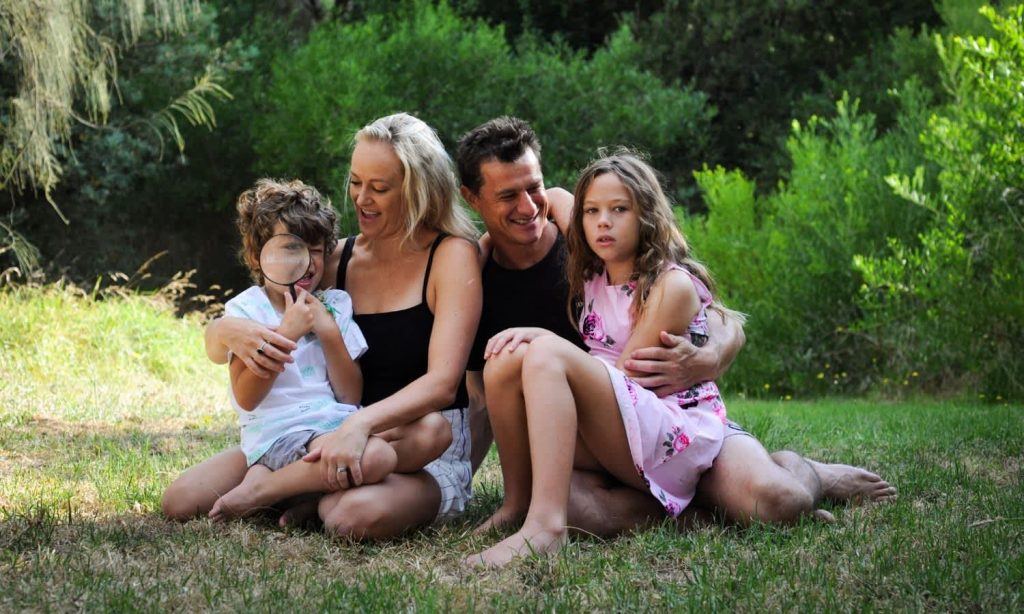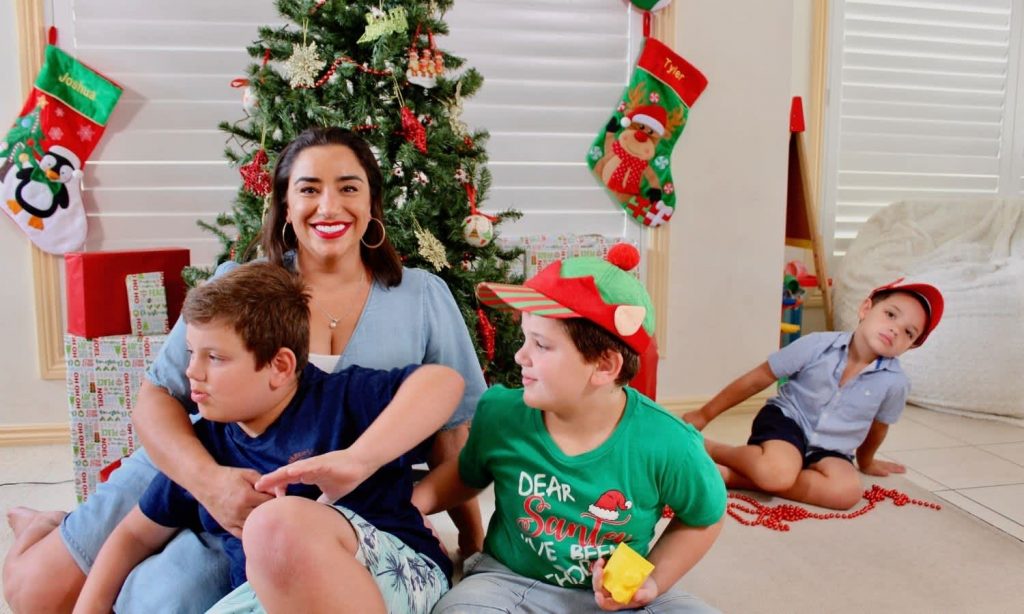It’s estimated that one in 70 Australians sit on the autism spectrum — around 353,880 people in our population. And if you’re reading this article, it’s probably because your child, or the child of someone close to you, has recently been diagnosed with an autism spectrum disorder.
We’re not here to dole out medical advice but we are here to give you the advice of parents who have been exactly where you are now. The Latch spoke to Monique Cain, author of the Everyday Autism series, and Kathrine Peereboom, founder and CEO of Spectrum Support, to gather their tips on parenting children with autism.
In researching this article, a quote from Dr Stephen Shore kept resurfacing: “If you’ve met one individual with autism, you’ve met one individual with autism.” Just as each of your children will experience autism differently, so will each of you reading this.
What’s been your experience raising children with autism?
Both Cain and Peereboom are raising children with autism, with Cain raising two children on the spectrum, and Peereboom raising three.
Speaking of her own experience, Cain says “It’s been an extremely overwhelming and emotional experience raising our two children both diagnosed with autism.” Her parenting journey has not been the most straightforward, as “it’s taken years to learn and educate ourselves, and find the best ways to help our family.” Summed up in one word? Life-changing.

Peereboom has similar sentiments about raising her three boys, who all are diagnosed with level three — the highest diagnostic level — which requires very substantial support. She says, “It’s extremely difficult at times, but my god, it’s equally amazing”.
Although her non-verbal boys have taught her more about who she wants to be in this life than she could have ever imagined, she does say that autism has brought her family a level of isolation that she never expected. Peereboom has relocated from Sydney to the Gold Coast to improve her boys’ quality of life; she’s making provisions for the future that includes purchasing land large enough to build three townhouses, so her boys can live in them for the rest of their lives.
“It’s our job as parents to help them navigate their way in this world, and we do this with unconditional love.”
What information was given to you at the time of the ASD diagnosis?
“We were left confused, and made to feel our child was broken,” recounts Peereboom. Reflecting, she says she’d like to see professionals providing a diagnosis to be supportive, show empathy, and to “please have a pack to give the parents with relevant information in your area on where they can find services for their child, and a support network for [the parents] too!”
Cain was given names of paediatricians as well as organisations that might have helped with earlier intervention, but beyond that “it was completely up to us to seek and explore further assistance”.
Thankfully, they knew another local family who had a son diagnosed on the spectrum a few years before, as “at the time we knew absolutely nothing about autism, who to see or what to do.” This friendly family kindly gave them more advice and direction.
What advice do you wish you could give your younger self about parenting a child with autism?
The first thing Peereboom advises is to “release the guilt as soon as you can. You did nothing wrong. Let me say that again, you did nothing wrong!” As for Cain: “Take a big, deep breath and hold on tight, because it’s going to be a wild ride.”
Peereboom recommends creating a diary for each child, recording something they did in the day, “whether it be fun, heartbreaking or just downright quirky.” Reflecting on that, along with photos and videos of her boys, has been so powerful for her.

Cain advised her younger self to try every professional assistance available and to continue with whatever happens to work at the time. “You’ll require a whole team of professionals to help you parent your child — as bad as that will make you feel — but it’s essential.” Adding that “it really helps to talk to other people who have experienced similar scenarios,” and to take advice and apply what’s relevant to you.
Peereboom agrees on the additional support, recommending parents “get ready for mountains of paperwork, laminating visual aids, and days where you just don’t know if you’re good enough.”
Just remember: You know your children the best. “Find what your children love and follow their interests and what they love to do and join in with them too,” says Cain. Although life may not be quite how you imagined it to be, “you’ll learn to appreciate all the little things, and find pure joy in precious moments,” she said.
What tips would you give a parent coming to terms with their child’s autism diagnosis?
“Allow yourself to feel whatever emotions you need,” recommends Peereboom, whether it’s grieving, guilt, fear or validation. “Just remember that a piece of paper doesn’t change who your child is.”
Cains top two tips are to “continually educate yourself about autism; seek help and support that’s available.” Support can include reading, attending seminars, seeing professionals, or joining online groups. Peereboom reminds parent that an ASD diagnosis allows access to support, therapies and funding “to help your child with whatever challenges they face.”
In terms of your child (or children, as the case is with Cain and Perreboom), “observe your child’s likes and dislikes, respect them, understand them, and learn the best ways to help them become more comfortable — in their own skin, and their surroundings,” says Cain. Peereboom agreed, saying that joining in on an activity that your child thoroughly enjoys is a gateway for lots of precious moments.
Setting up your house with sensory essentials is another tip from Cain, along with incorporating whatever makes you feel more comfortable. As she says, “You all need a safe place to return to after the chaos of reality”.
If you’re having a bad day? Start planning a break for yourself, recommends Peereboom, whether it’s an emergency respite, a support worker, massage a holiday or something else entirely.
What resources have been helpful that you would recommend to other parents?
The first thing Peereboom recommends a new autism parent does is to reach out to the National Disability Insurance Scheme (NDIS) and commence your application for your child’s funding. It’s key to access support such as early intervention, speech therapy, occupational therapy, behavioural therapists and more. “Finding a GP and family psychiatrist is also beneficial for your child,” she says.
For you, as a parent, specifically? “There are wonderful resources you can access in each state through autism organisations,” says Peereboom. And if you ever feel like you need additional support, you can receive several psychiatrist sessions for free through your GP – so reach out!
With her own wealth of knowledge and experience, Peereboom established Spectrum Support in 2017, to provide more awareness, support and training across the community.
Similarly inspired through her own experiences, Cain has written a series of books called Everyday Autism, that she recommends to all parents, friends, families and educators living with autism.
She’s also written Never Give Up! Riding the Emotional Rollercoaster of an Autism Parent, an honest account of her families journey, “sharing everything we’ve learnt along the way, to help others.”







